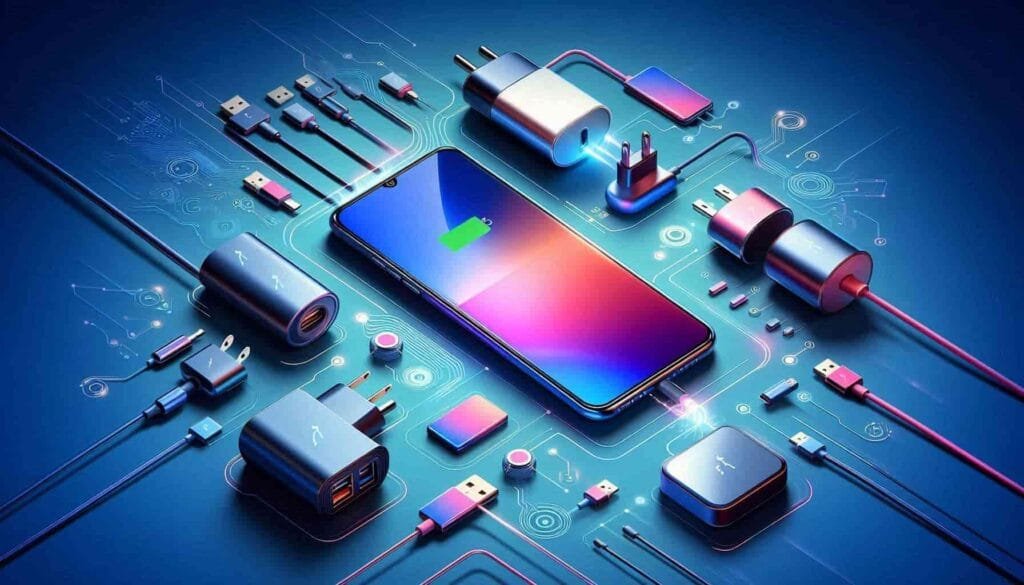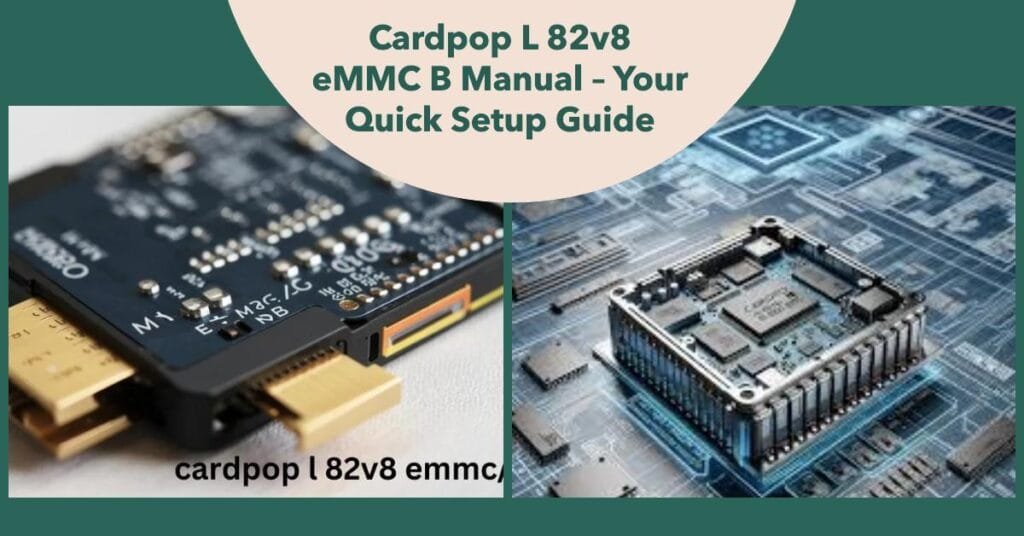
Phone chargers are a diurnal need in the technologically driven terrain of moment. Chancing the correct bone from the numerous choices available can feel like negotiating a maze of lines, connectors, and power conditions. Not all chargers are made inversely, hence opting the wrong bone could affect the performance or battery life of your contrivance. The Types of Phone Chargers will be broken out in this companion to enable you to choose the ideal fit for your requirements.
Why Choosing the Right Charger Matters
choosing the right charger goes beyond simple convenience. Correct charger influences general device compatibility, charging speed, and battery life.
Battery Health
Using a charger that isn’t compatible with your device’s battery can gradually degrade its health. Chargers with inconsistent voltage or those that provide too much current can damage the battery, causing it to hold less charge over time.
Charging Speed
A speedier bowl could be relatively helpful if you are pressed for time. Fast charging is n’t supported by all smartphones, hence opting a bowl applicable for your device will guarantee the stylish charging speed without running the threat of battery damage.
Compatibility Issues
Compatibility goes beyond mere connector form. Not all chargers can satisfy the particular power consumption that devices demand. Using an unsuitable charger can cause problems including delayed charging or perhaps overheating.
READ MORE: Tronics 0rul1108 Bluetooth
The Basics of Charging Technology
Knowing charging technologies helps one choose the applicable bowl more fluently. Let us examine the principles you should be familiar with and how charging operates.
How Charging Works
Charging uses direct current (DC) to supply the battery of a gadget, therefore transforming alternating current (AC) from an outlet into the necessary DC form. Measuring in watts (W), the power output controls battery charge speed.
Overview of Charging Standards
Among the often used charging standards are Apple’s proprietary charging systems, Qualcomm Quick Charge, and USB Power Distribution (UBD). With USB-PD being generally embraced for its capacity to transmit up to 100W power safely, every standard has its own power output limits and compatibility issues.
Types of Phone Chargers by Connector Type
Various kinds of connections fit various kinds of equipment. Knowing these differences will guide your choice of one.
USB Type-A
One of the first versions used in phone chargers, USB Type-A connections are rectangular. They fit a broad spectrum of adapters and cables, however not perfect for high-speed charging.
USB Type-B
Although not as widespread in contemporary devices, USB Type-B is still utilised in some specialist equipment. Generally observed in older models, type-B connectors feature a squarish form.
USB Type-C
Versatile and supporting quick charging and high-speed data transfer, USB Type-C is USB-C has evolved as the standard for many products with its reversible architecture and broad compatibility.
Lightning (Apple)
Specifically for iPhones and some iPad models, Apple’s own Lightning connector is Though quick, Lightning charges are not as flexible as USB-C but are indispensable for Apple consumers.
Types of Phone Chargers by Power Output
The speed at which your gadget charges is determined on its power output. Here, the main forms are separated out.
Standard Charger
Usually with a wattage of less than 5W, standard chargers have Though they charge more slowly than higher-wattage chargers, they are perfect for simple charging needs and fit most devices.
Fast Charger
Usually running from 15 to 20W or more, fast chargers are made to charge devices quickly by offering increased power output. Since most modern cellphones allow some type of quick charging, these chargers are often used on daily basis.
Super Fast Charger
Above 20W, really fast chargers can even deliver 45W or more. Usually compatible with the newest high-end devices, this kind is great for consumers who need quick charging on-demand.
Types of Chargers Based on Charging Technology
Wired and wireless charging techniques are the two main ones with benefits of their own.
Wired Chargers
Wired chargers run a cord to the gadget. They are fit for quick charging needs since they offer consistent charging and often speed than wireless chargers.
Wireless Chargers
Using electromagnetic induction, wireless charging charges gadgets without cords. Although wireless chargers are more handy than cable options, usually they provide slower charging rates.
Magnetic Wireless Chargers
To maximise wireless charging glamorous wireless dishes like Apple’s MagSafe align the device with the bowl.Designed to operate faultlessly with compatible bias, they offer briskly wireless charging than conventional wireless dishes.
Types of Specialty Chargers
Apart from basic choices, speciality chargers fit particular circumstances and thereby help on-the-go or ecologically aware consumers.
Car Chargers
Perfect for running electronics on the road, car chargers plug into the power outlet of a vehicle. They might contain fast-charging choices and typically feature USB Type-A or USB Type-C connectors.
Solar Chargers
Perfect for outdoor aficionados, solar chargers create electricity from solar panels. Although charging durations rely on sunshine availability, they provide an environmentally friendly way to keep gadgets charged off the grid.
Power Bank Chargers
Power banks enable consumers charge items on-demand without requiring an outlet by storing electrical energy. Available in several forms, they are indispensable for everyone requiring consistent backup energy.
Choosing the Right Charger for Your Device
Choosing the right charger calls for more than just selecting one that suits your gadget. Here’s some things to give thought.
Checking Compatibility
Always find out whether your charger fits your particular model of device. varied devices have varied power needs, hence using an unsuitable charger could cause poor charging rates or device damage.
Understanding Power Needs
Knowing the power consumption of your gadget will enable you to choose a charger with best charging speed. To get the suggested wattage from your gadget, consult its handbook or specs.
Considering Usage Habits
If you charge your phone often from home, a regular or fast wired charger would be ideal. A portable power bank or car charger can provide further travel convenience.
Tips for Safe Charging
Safe charging techniques guarantee consistent performance and help to prolong the battery life of your smartphone.
Avoid Overcharging
Leaving your smartphone connected in once it’s completely charged can compromise battery life. Once it shows 100%, try to unplug it.
Use High-Quality Chargers
Choose premium chargers from reliable manufacturers to prevent overheating or damage your equipment. Inconsistent voltage of generic or low-quality chargers could be dangerous.
Avoid Extreme Temperatures
Extreme temperatures may reduce battery capacity. For optimum performance, avoid charging your smartphone under excessively hot or cold temperatures.
Conclusion
Life,effectiveness,and stoner convenience of bias depend on the correct phone bowl. From presto charging and wireless choices to conventional string dishes,every kind of bowl fulfils a particular use. Knowing the several kinds that are on the request and allowing about the demands of your contrivance will help you choose the stylish bowl to keep it running without problems.
FAQs
1. Can I use a fast charger with any device?
While many devices support fast charging, some may not. Make sure your smartphone is compatible with fast charging by checking its compatibility.
2. What’s the difference between USB-C and Lightning?
USB-C is a universal connector used by most brands, while Lightning is Apple’s proprietary connector for iPhones and iPads.
3. Is wireless charging slower than wired charging?
Yes, generally, wireless charging is slower than wired charging, although magnetic wireless chargers offer improved speeds.
4. Are solar chargers reliable?
Solar chargers are effective in sunny conditions but may struggle to generate enough power on cloudy days or indoors.
5. Does overcharging harm my phone battery?
Consistently overcharging can reduce battery health, so it’s best to unplug once fully charged.

